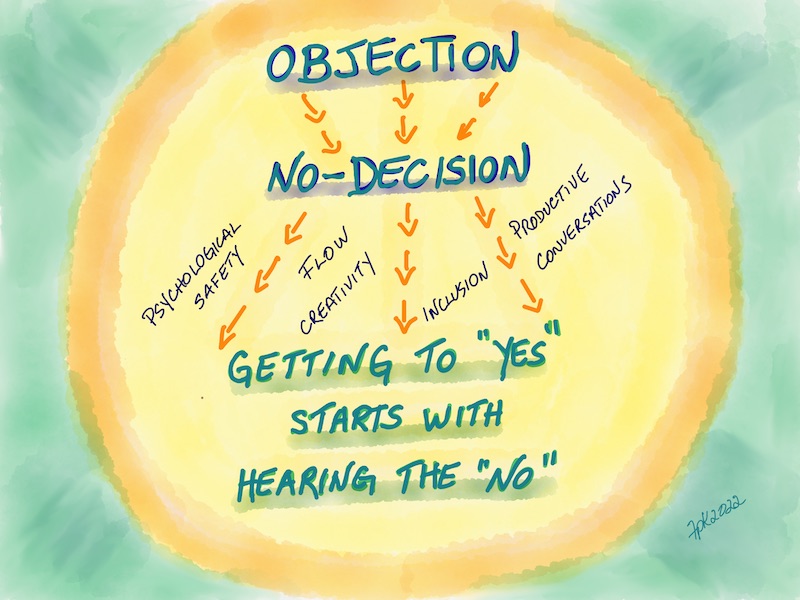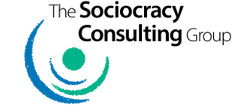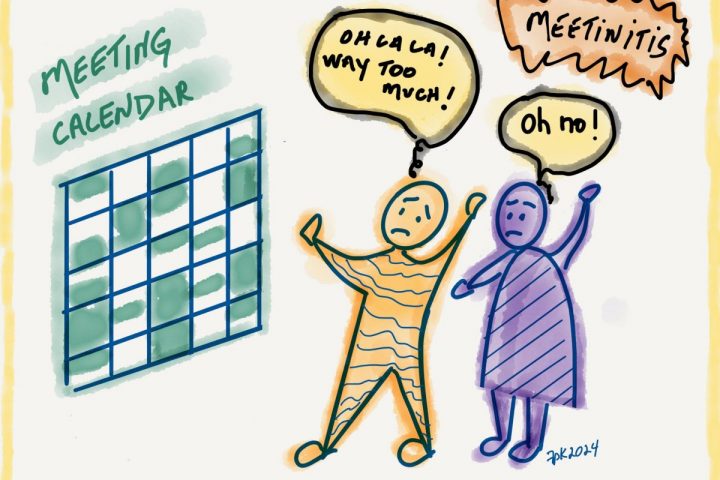 Heed objections or exclude objectors?
Heed objections or exclude objectors?
“I have an objection,” said Jodie, a young health worker. “Our training is for people suffering from loneliness in isolation. This decision will put off the people we are wanting to help!”
Jack had proposed to the policy meeting that the group’s in-person training be delayed if there was a lockdown due to COVID. The training was core to the group’s project of co-designing and delivering an eight-week community-based program for young people impacted by loneliness.
“This will jeopardize the project!” Jodie added. “Many of my peers are scared to leave their house, anxious of being infected with COVID from mixing with strangers.”
Is “no decision” a decision?
The facilitator led a round in the policy meeting. No ideas emerged that would resolve the objection and lead to consent of the proposal. The facilitator then declared, “Looks like we have ‘no decision’ and no ideas for modifying the proposal. I think we need to start fresh with a new proposal.” Boldly, the facilitator asked “Would Jodie and Jack be willing to work together and bring a new proposal to next week’s meeting?” With surprising enthusiasm, Jodie accepted the task and Jack agreed to partner with her. There were no objections to moving forward in this way.
In the closing round, members reflected on their experience of the meeting. Jodie liked being assigned homework. Another member had observed how a productive conversation came with hearing objections. Jack noticed that he had shifted his view, that training should be in person, by 180 degrees over the course of the meeting. The facilitator reflected that despite ‘no decision’ being made, there seemed to be a renewal of energy.
At the following meeting, the group consented to a new proposal brought forward by Jodie and Jack. Everyone was inspired!
Rejecting the Objector
“Sometimes, if someone digs their heels in, uncomfortable compromises have to be made,” said Mark in another group struggling to amend a proposal to resolve a member’s objection. “I think we should exclude the objecting member from the consent round. Life goes on, things need to be done, and we can’t wait for bright ideas to turn up according to their own timetable.”
In the Sociocratic Circle-organization Method, an objection is a reason why a proposal does not support a group’s aim or purpose. Consent is achieved when all objections have been resolved. Are there times when a different approach is required to be able to make a decision? Is excluding an objecting member from a consent round an option?
When making policy decisions, excluding someone from a consent round on the basis of an objection is a dangerous practice. It undermines the principle of consent decision-making, which is designed to ensure that no one is ignored. While excluding someone may deliver a quick-fix policy decision, it will compromise trust and psychological safety, and reduce the quality of the group’s decision.
Policy versus operational mode
‘No decision’ in a policy meeting need not unduly impact daily functioning when the difference between policy mode and operational mode is understood. Operations are guided by policy decisions, which include delegating responsibility for tasks to operational roles. Operational roles have the authority to make day-to-day decisions in line with existing policy.
Policy decisions are decisions that guide the work of the group by setting standards and parameters. In the case of not making a new policy, the current policy (or lack thereof) remains. Alternatively, an experiment can be carried out trialing a new approach, with results informing the subsequent development of a new policy proposal. Operations can continue either way. It is a misconception that operations will be stalled if there is no consent to a policy decision.
Solutions come from the combination of people and process
Creating a culture where we accept ‘no decision’ helps us work together effectively. Just as objections can bring forward useful information, a ‘no decision’ can be valuable and renewing.
Hearing the ‘No’ is a better way of getting to ‘Yes’ than avoiding or overriding it. Cultures that welcome a ‘No’ build a better quality ‘Yes’, and trust and resilience along with it. While it may be tempting to exclude an objection or an objector, quick fixes can bring a slow withdrawal of trust. The best solutions come by engaging people in the process, rather than excluding them from it.
To explore how to bring design thinking to your organisation, contact us for a free consultation.
 Gina Price helps children and adults design organisations that work and fulfill their purpose. A founding member of The Sociocracy Consulting Group, Gina has over 12 years experience using the Sociocratic Circle Method to create effective, adaptive and responsive organisations.
Gina Price helps children and adults design organisations that work and fulfill their purpose. A founding member of The Sociocracy Consulting Group, Gina has over 12 years experience using the Sociocratic Circle Method to create effective, adaptive and responsive organisations.



